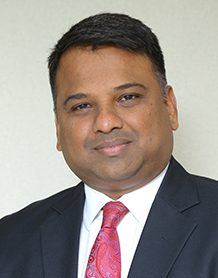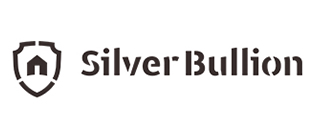Navigate
Article List
- Asia, Australia and Gold
By Nicholas Frappell, General Manager, ABC Bullion
- LMEprecious – New Opportunities for the Asia Pacific Precious Metals Market
By David Mears, Assistant Vice-President, Precious Metals Market Development, London Metal Exchange
- Building a Belt and Road Gold Corridor in Asia
By The Chinese Gold & Silver Exchange Society
- Working Together to Achieve the Mutual Benefits in the Golden Era
By Wang Zhenying, President, Shanghai Gold Exchange
- INTL FCStone – Supporting the Bullion Market’s Growth in Asia
Feature: INTL FCStone
- Transforming India Gold Market
By Sameer Patil, Head – Business Development, BSE
- Canada’s Mining Finance Ecosystem a Model for Late-Cycle Precious Metals Capacity Expansion
By Bart Melek , Director and Global Head of Commodity Strategy, TD Securities
- Bridging Gold and Cryptocurrency
By Richard Melbourne, Head of Member Services, Kinesis Money
- SBMA News
By Albert Cheng, CEO, SBMA
Article List
- Asia, Australia and Gold
By Nicholas Frappell, General Manager, ABC Bullion
- LMEprecious – New Opportunities for the Asia Pacific Precious Metals Market
By David Mears, Assistant Vice-President, Precious Metals Market Development, London Metal Exchange
- Building a Belt and Road Gold Corridor in Asia
By The Chinese Gold & Silver Exchange Society
- Working Together to Achieve the Mutual Benefits in the Golden Era
By Wang Zhenying, President, Shanghai Gold Exchange
- INTL FCStone – Supporting the Bullion Market’s Growth in Asia
Feature: INTL FCStone
- Transforming India Gold Market
By Sameer Patil, Head – Business Development, BSE
- Canada’s Mining Finance Ecosystem a Model for Late-Cycle Precious Metals Capacity Expansion
By Bart Melek , Director and Global Head of Commodity Strategy, TD Securities
- Bridging Gold and Cryptocurrency
By Richard Melbourne, Head of Member Services, Kinesis Money
- SBMA News
By Albert Cheng, CEO, SBMA
Transforming India Gold Market
By Sameer Patil, Head – Business Development, BSE
Published on June 4, 2018


Sameer Patil is Head – Business Development at BSE. He has over 19 years of experience in the financial market and regularly speaks on precious metals in India and at global forums. He joined BSE in July 2015 to head its currency derivatives division, which is now the market leader in this segment and the preferred venue for trading CDX in India. He worked for MCX, India’s top commodities exchange, from its inception for more than a decade as Senior Vice President – PKMT (Precious Metals) & Business Development.
Gold is intertwined with India’s way of life. The precious metal has a very important place not just in the country’s cultural milieu, but also its economy. This public’s close relationship to gold may be viewed not just from the perspective of tradition but in economic terms as well.
Indians have always invested a portion of their savings in gold and other precious metals. The average Indian household saves over 20 percent of its annual income in the form of gold and silver ornaments. India is the world’s second-largest gold market, with around 800 tonnes of domestic demand per annum, which accounts for around 25 percent of global demand. India’s appetite for gold is met largely through imports, with less than 1 percent coming from local mining and about 10 percent from recycling.
Considering that gold is a hugely popular investment vehicle in India, there is an urgent need for a uniform and regulated market mechanism to facilitate its trading. However, the Indian gold market is extremely fragmented, with prices varying significantly across channels and locations.
Modernising India’s gold market
As the global gold market continues to shift from the West to the East, many Asian countries including China, Singapore and the UAE have set up global-scale physical infrastructure to cater to the growth in demand in the region. Gold exchanges and related infrastructure set up by these countries appear to have greatly enhanced the efficiency of their gold markets.
India, moving in the same direction, has initiated various gold market reforms. BSE, Asia’s oldest stock exchange and the world’s fastest exchange with a speed of 6 microseconds, is contributing in various ways to advance the country’s gold market reforms and initiatives.
Sovereign gold bond schemes
India’s sovereign gold schemes, which include the gold monetisation scheme and the sovereign gold bond (SGB) scheme, are initiatives to reduce the country’s gold imports and allow gold that is lying idle with individuals to be used as an easily accessible financial asset.
SGBs passively track the price of gold and hence functions as an investment equivalent to holding physical gold. BSE is acting as a receiving office, and aggregates applications and the transfer of funds. BSE also provides a secondary market platform for investors who wish to sell these bonds before the maturity, if held in demat form.
Gold spot exchange
India, despite being one of the largest consumers of gold in the world, plays a relatively small role in the global bullion market and in the process of determining the price of gold. Setting up a bullion spot exchange would lead to efficient price discovery, assurance in the quality of gold, active retail participation, greater integration with financial markets, and greater gold recycling. BSE is preparing to launch a bullion exchange for gold that can address lacunae in the gold market. The spot exchange would create a vibrant gold ecosystem in India commensurate with India’s large share of global gold consumption.
Trading platform for commodities derivatives
The Securities and Exchange Board of India (SEBI) has approved the created of an integrated platform for trading in equities, currency and commodities by October 2018, essentially creating a universal exchange. When fully implemented, this would provide a highly regulated, safer and more transparent trading, clearing and settlement framework that would facilitate trades for participants in various markets. With this, BSE hopes to offer commodities derivatives segment to complement its gold offerings.
Global Financial Centre in India
BSE opened India International Exchange IFSC Limited (India INX), the country’s first international exchange, at the International Financial Services Center (IFSC), GIFT city, Gandhinagar, in January 2017. It has one of the world’s most advanced technology platforms and operates for 22 hours a day to allow international investors to trade from anywhere across the globe. India INX offers trading in two variants of gold derivative contracts, the Gold Future and Option Contract and the Gold KG Future Contract, which have recorded significant trading volumes.
The way forward
With its efforts to modernise India’s gold market, BSE should continue to play a pivotal role in growth and development of India’s bullion market going forward, thus enabling gold to serve as a legitimate asset class for millions and for it to play a dynamic economic role.
By extending its platform for gold’s physical market, gold derivatives and distribution of various gold schemes, BSE efforts will enable India to integrate better with global markets, which will allow the country to emerge as a key market for gold.

Sameer Patil is Head – Business Development at BSE. He has over 19 years of experience in the financial market and regularly speaks on precious metals in India and at global forums. He joined BSE in July 2015 to head its currency derivatives division, which is now the market leader in this segment and the preferred venue for trading CDX in India. He worked for MCX, India’s top commodities exchange, from its inception for more than a decade as Senior Vice President – PKMT (Precious Metals) & Business Development.

























